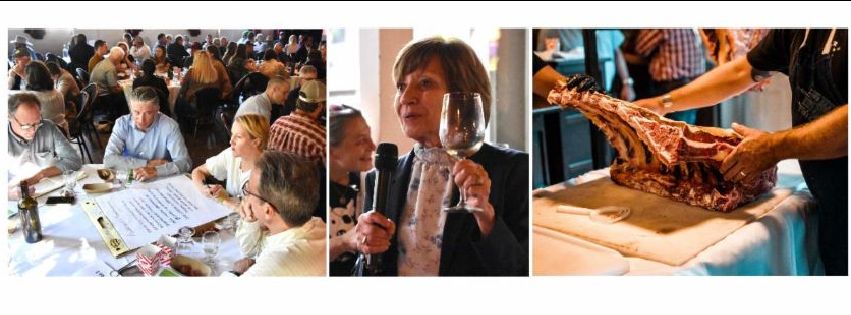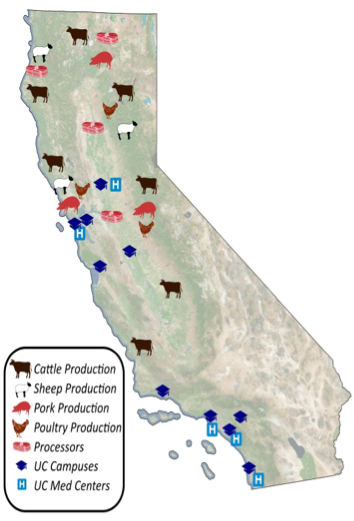Systemwide Procurement
Creating a Sustainable Food Supply Chain
UC's pivotal role in regenerative agriculture
 In late June, University of California (UC) Systemwide Procurement representatives met with farmers, producers, & buyers at a Regenerative Meat Summit hosted by UC Davis Food Systems Lab* and Roots of Change** at Mulvaney’s B&L, a noted farm-to-table restaurant in Sacramento, CA.
In late June, University of California (UC) Systemwide Procurement representatives met with farmers, producers, & buyers at a Regenerative Meat Summit hosted by UC Davis Food Systems Lab* and Roots of Change** at Mulvaney’s B&L, a noted farm-to-table restaurant in Sacramento, CA.
(*Food Systems Lab is a UC Davis program focused on developing and improving the information management aspects of food system sustainability, along with food supply chains, working landscapes, data curation, policy analysis and community engagement. **Roots of Change is an advocacy organization that works with farmers, ranchers, processors, universities, nonprofits, and government to ensure our food supply is climate smart, healthy and accessible for all eaters, safe and fair to workers, and profitable for companies.)
 What is regenerative meat production?
What is regenerative meat production?
Regenerative production has three criteria:
- Soil Health – rotational grazing/moving animals through pasture to improve soil, plant, & animal health, and avoid using chemicals & pesticides,
- Animal Welfare – ensuring animals are free from fear, discomfort, and distress (this equates to free-range),
- Social Fairness – all farm workers are paid a living wage with good working conditions.
What was the Meat Summit's purpose?
The Summit was a catalyst for strategizing how UC can achieve economic, ecological and health goals by developing a supply chain of high-quality regional meats produced using regenerative practices and creating a regenerative agriculture movement across California. This event was also part of a three-year USDA-funded project aimed at increasing supply chain resilience in climate instability and revitalizing rural economies.
The Summit opened with two context-setting panels featuring eight presenters that indicated the time is ripe for bold action that would scale up the multi-year “Beef2Institution” pilot already underway by a collaborative of advocates, ranchers and processors. This successful pilot provides grass-fed beef to UC Davis Medical Center and two UC campuses.
The panels were followed by three 30-minute brainstorming sessions addressing these topics:
- Solutions for efficiently and affordably aggregating and transporting animals,
- Solutions for ensuring timely processing of animal and affordable storage of resulting meat products, and
- Defining regenerative production and regional identity.
Thirteen tables of stakeholders captured their brainstorming ideas. Post-event, the Summit’s project team organized, analyzed and wrote up a synthesis of the brainstormed content with proposed recommendations. Read the Regional Regenerative Meat Summit Report & Recommendations that outlines the next steps for putting the Summit’s findings and ideas into action.
What are UC’s goals in sustainable food practices?
The University of California Sustainable Foodservice Practices states: “All UC Campuses and Academic Health Centers will minimally procure 25-30% plant-based, sustainably, and ethically produced food and beverage products by 2030.”
At the close of FY21-22, UC Foodservices had realized 19.5% sustainable food purchases. This represents over $27M going to sustainable food suppliers. This success shows we are on the right path, and we will continue to make headway towards this goal.
Creating a regenerative agriculture supply chain also offers many small and diverse business opportunities. Systemwide Procurement Chief Paul Williams has already held discussions with small and minority-owned investment companies about potential ways to join forces on this initiative. Stay tuned for more exciting news on regenerative agriculture and how UC can play a pivotal role in developing a more sustainable food supply chain in California.
